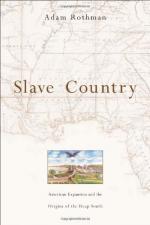|
This section contains 1,043 words (approx. 4 pages at 300 words per page) |

|
The role of the newspapers in a democratic society was an important issue in the antebellum era, when the American experiment was new and the institutions of popular democracy were not yet fully formed. The press was one of these institutions, a private undertaking that had public responsibilities. How would the press use its power? Would it help or hinder the growth of democracy? No less than Alexis de Tocqueville, the French observer of early-nineteenthcentury America, realized that newspapers did more than simply report the news. In Tocqueville's analysis the press was an effective instrument of democracy, providing individual citizens with a way to organize and make their voices heard. Thus newspapers, along with the voluntary associations Americans seemed so fond of organizing, worked together to address social problems and create a more responsive government. This was especially true in...
|
This section contains 1,043 words (approx. 4 pages at 300 words per page) |

|




